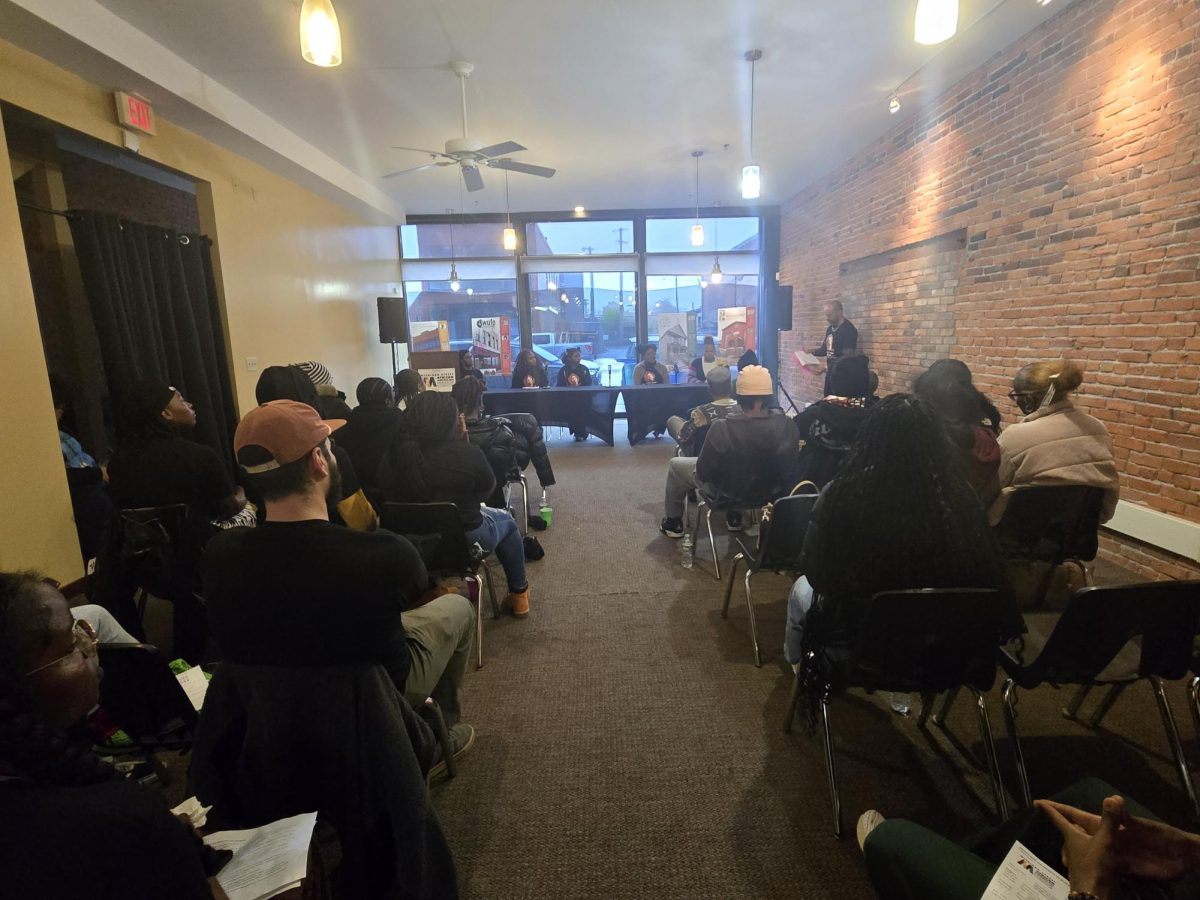Anxiety and academics: how the two go hand in hand
November 30, 2016
“It happens at the snap of a finger. You’re fine, then you’re shaking and hyperventilating until you start crying or you pass out from being so lightheaded. You can’t stop it. You have to just ride it out no matter where you are and no matter who’s watching.”
Emilie Ledwin is one of many students nationwide who struggle with an anxiety disorder. At least one in every six college students suffer from a mental illness. Anxiety disorders that are usually experienced are Generalized Anxiety Disorder (GAD), panic disorders, phobias, and social anxiety. These illnesses may not be presentable to the visible eye, but it is important to speak up about any uneasy feelings one may have. Considering how common these illnesses are, this is an issue that can no longer be pushed to the side.
Ledwin, a junior at Buffalo State majoring in hospitality management, has been clinically diagnosed with generalized anxiety disorder, panic disorder and a phobia disorder. “Every person I pass by, I wonder what they’re thinking of me and then it begins. I start to worry about what I look like, and what they’re thinking. I’m always checking my surroundings and begin to create scenarios in my head about things that could possibly go wrong. It makes it difficult for me to live in the moment.”
Professor Pamela Schuetze of the Buffalo State Psychology Department views anxiety as a worried or nervous feeling about something specific or just an overall general feeling. Along with the inner conflict, anxiety also produces physical symptoms like an uneasy stomach or headaches.
However, she does believe that there is a difference between experiencing anxiety symptoms and suffering from an anxiety disorder. “Experiencing some anxiety is normal and a part of everyday life. Experiencing intense and frequent anxiety that interferes with daily functioning is problematic. College students are juggling school, work, family and friends so it is entirely understandable that there is a lot of anxiety.”
General anxiety is a normal reaction to stress, and can be looked at as a good thing in some cases. It can motivate you to finish your assignments in a timely matter and focus more on your studies. However, an anxiety disorder involves intense episodes of fear and panic along with excessive anxiety that you are unable to get under control, according to ULifeline.
While feeling anxious about achieving good grades in college is completely normal, the likeliness of students experiencing an actual disorder has increased tremendously. According to the Association for University and College Counseling Center Directors, the percentage of students who experience an anxiety disorder has increased from 37 percent in 2007 to 46 percent in 2013.
Ledwin’s work has suffered since the beginning of her college career due to her disorders. “I’ve missed many classes just from running late and fearing walking into the classroom with my peers staring at me. I’ve had to leave classes multiple times because of my panic attacks and have had to miss out on lessons. Not many teachers understand or accept that behavior, and I’ve suffered from that as well.”
Coping with general anxiety or an anxiety disorder can be another challenge. Schuetze best describes it as a ‘trial and error’ method.
“Everyone needs to find their own way of coping in a productive manner. For some, it may take spending time with friends or family. Others may want a hobby or exercise to release their anxiety. Others may benefit from systematic relaxation techniques.”
Ledwin finds that listening to music is a helpful tactic for her, as well as removing herself from the situation. Unfortunately, those solutions only form some sort of temporary relief for a short amount of time.
“Honestly, I feel that my anxiety is so bad that there’s nothing I can do about it. It’s become a part of me. I’m on medication that I take every day to control it. I also have additional medication I’m able to take if I feel an attack coming on.”
One in every four college students suffer from a mental illness per the National Alliance on Mental Health. Aside from anxiety, students suffer from depression, suicidal thoughts, addiction, and eating disorders. These anxiety disorders have surpassed depression as the most commonly experienced mental illness on college campuses. Visit your campus’ college counseling center for more information and helpful resources to defeat the battle with anxiety and mental illness.




EmmaLouise • Dec 1, 2016 at 7:41 am
It amazes me how more and more people are coming forward with this problem. I have suffered with generalised anxiety disorder for years and I hate it. I wish there was a switch inside my head which would turn it off. Even now, I feel that people don’t understand my inability to control the anxiety. I am pushing forward everyday, trying to build a better future for myself, despite this illness. However, it just keeps pushing back. It is a daily battle, but it is a battle I will continue to fight everyday. There should be more support available for people suffering from anxiety. People don’t realise how debilitating it can be, just because they don’t see it on the outside.
I hope that one day, people can be more understanding and supportive of this problem.
http://www.mygeneralisedanxietydisorder.com